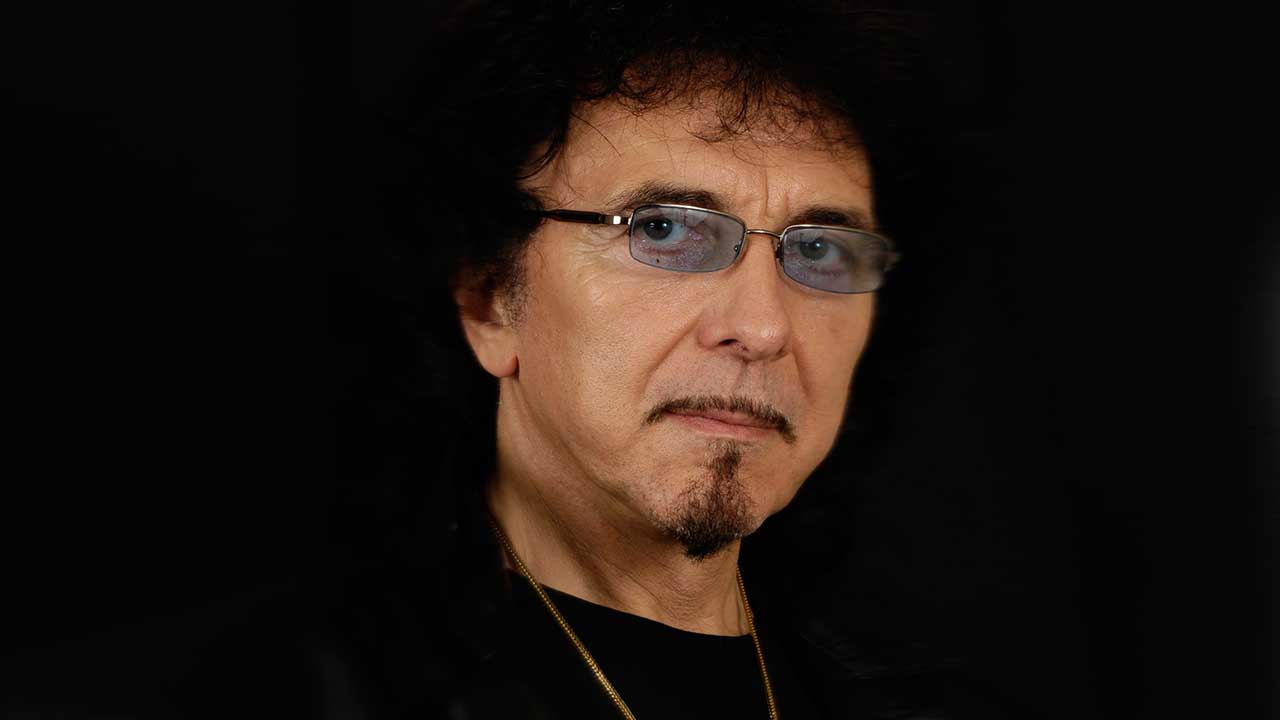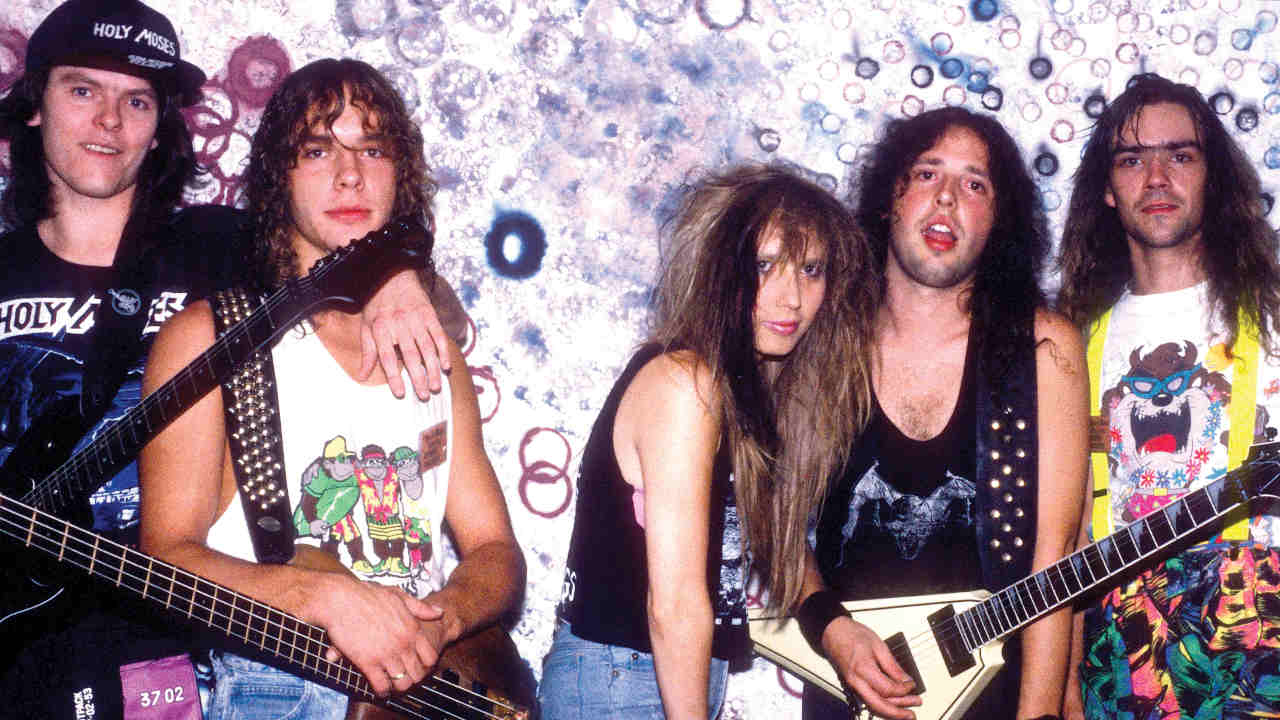Tony Iommi looks back on the legacy of Black Sabbath's legendary debut album
Recorded in a rush and inspired by horror films, Sabbath’s debut was panned by critics. Idiots. Here, guitarist Tony Iommi looks back on the album's legacy

Select the newsletters you’d like to receive. Then, add your email to sign up.
You are now subscribed
Your newsletter sign-up was successful
Want to add more newsletters?

Every Friday
Louder
Louder’s weekly newsletter is jam-packed with the team’s personal highlights from the last seven days, including features, breaking news, reviews and tons of juicy exclusives from the world of alternative music.

Every Friday
Classic Rock
The Classic Rock newsletter is an essential read for the discerning rock fan. Every week we bring you the news, reviews and the very best features and interviews from our extensive archive. Written by rock fans for rock fans.

Every Friday
Metal Hammer
For the last four decades Metal Hammer has been the world’s greatest metal magazine. Created by metalheads for metalheads, ‘Hammer takes you behind the scenes, closer to the action, and nearer to the bands that you love the most.

Every Friday
Prog
The Prog newsletter brings you the very best of Prog Magazine and our website, every Friday. We'll deliver you the very latest news from the Prog universe, informative features and archive material from Prog’s impressive vault.
In 1970, Black Sabbath created heavy metal’s big bang with their self-titled album. Often imitated but never bettered, Black Sabbath's success saw them go on to record some of the biggest-selling and most important releases of the 70s and pretty much single-handedly give birth to the heavy metal movement in the process.
The first step in a career destined to prove stratospheric, here guitarist Tony Iommi looks back on Black Sabbath's early classic.

What were you hoping to achieve with the first Sabbath album?
“We wanted it to be heavier than anything that had ever been heard before. In those days, everybody wanted you to play what was the ‘in’ thing. But we didn’t conform. We were creating something different.”
Who did you view as the competition?
“In the early days there was a rivalry between Black Sabbath and Led Zeppelin and Deep Purple, but not a bad kind of rivalry. We weren’t horrible to each other.”
What was going through your head when you wrote the song Black Sabbath?
Sign up below to get the latest from Metal Hammer, plus exclusive special offers, direct to your inbox!
“I liked the power and the atmosphere in horror films, and that had an impression on my writing.”
"Reviewers said no one liked us. It was upsetting."
Tony Iommi
Were you dabbling in the occult, or did it go deeper than that?
“We were really interested in it, especially Geezer [Butler, bassist] and I. Very interested in what it was like on the other side of life. We tried a Ouija board and frightened each other. I think in those days, we were open to a lot of stuff. We were young and learning and just trying to experience things.”
The recording of the album was a new experience for you...
“Oh yeah. We knew nothing about recording. All we knew in those days was how to play the songs, like we did at gigs. So it was very different for us to go into a studio with a producer. And because we only had a couple of days to do the whole album, it was hard for us because you only had one go at each song. We were like, fucking hell!”
How did you feel when the album was released?
“We loved the idea of having an album out. We never knew for one minute what was going to happen with it, of course. It was just exciting to be able to do an album.”
And then the bad reviews came in...
“It wasn’t nice to read the reviews. I just went, ‘Oh my God!’ I didn’t mind if a reviewer said, ‘It’s not my cup of tea, but a lot of kids do like it.’ But they said that nobody liked us. That was a little upsetting.”
You were also branded Satanists. How did you feel about that?
“I think in one way it helped us. At one point we weren’t doing any interviews, so nobody knew much about us. I heard stories about people being frightened to meet us. But it created this thing and people wanted to come and see what we were like. So the image was good and bad, really.”
And in the end, the critics were proved wrong, the album was a hit, and Sabbath soon became one of the biggest bands in the world...
“We were amazed that the album did so well. But the most important thing is, we believed in what we did, and that was the way life went for us, right from the beginning. We had to get over a lot of fences, but we just forged ahead. It’s the only way you can do it. You can’t just fall apart because of what other people say. You’ve got to believe in what you do. And we certainly did."
Freelance writer for Classic Rock since 2005, Paul Elliott has worked for leading music titles since 1985, including Sounds, Kerrang!, MOJO and Q. He is the author of several books including the first biography of Guns N’ Roses and the autobiography of bodyguard-to-the-stars Danny Francis. He has written liner notes for classic album reissues by artists such as Def Leppard, Thin Lizzy and Kiss, and currently works as content editor for Total Guitar. He lives in Bath - of which David Coverdale recently said: “How very Roman of you!”

